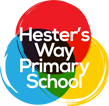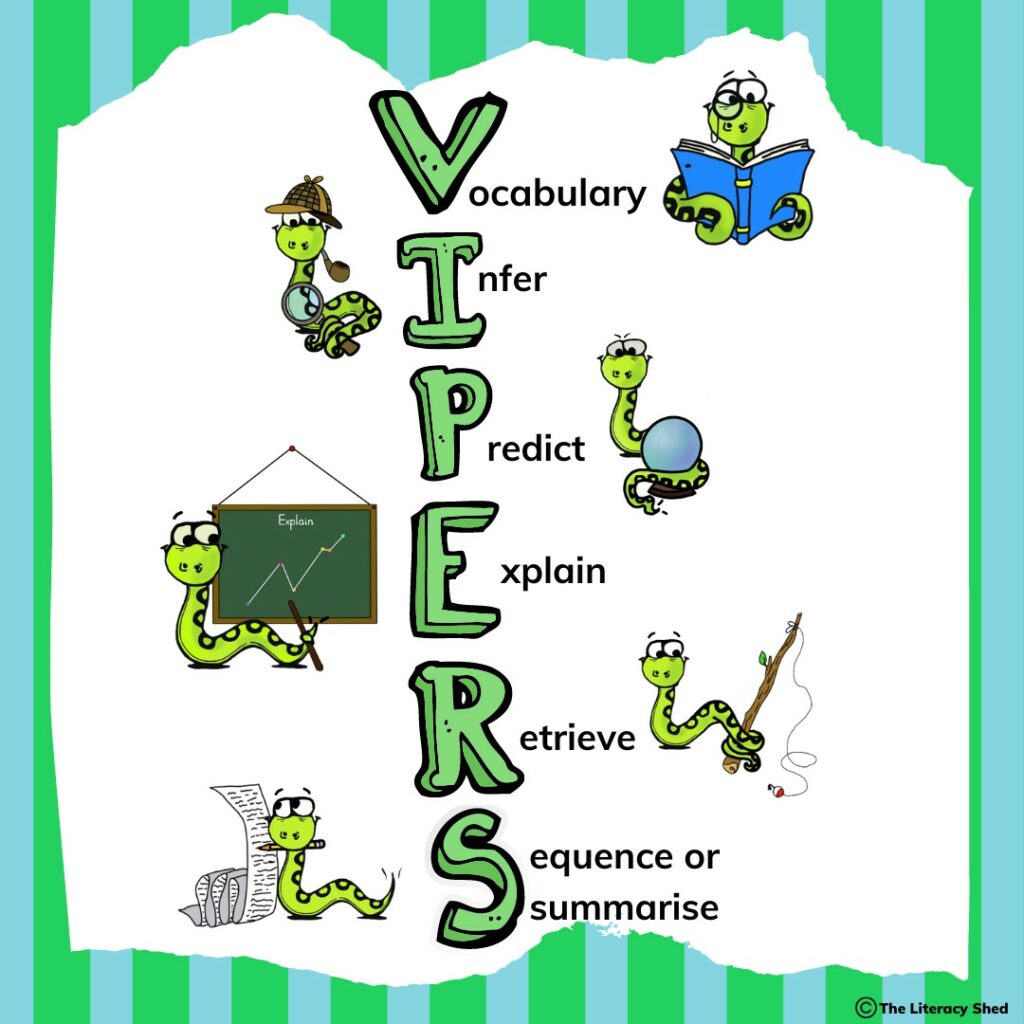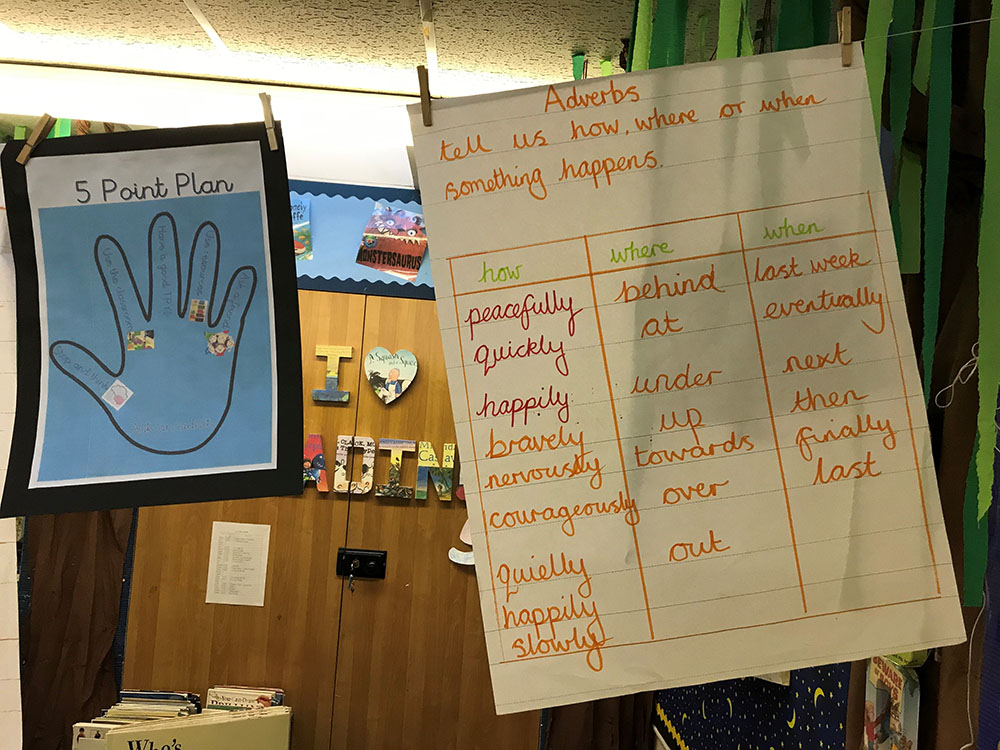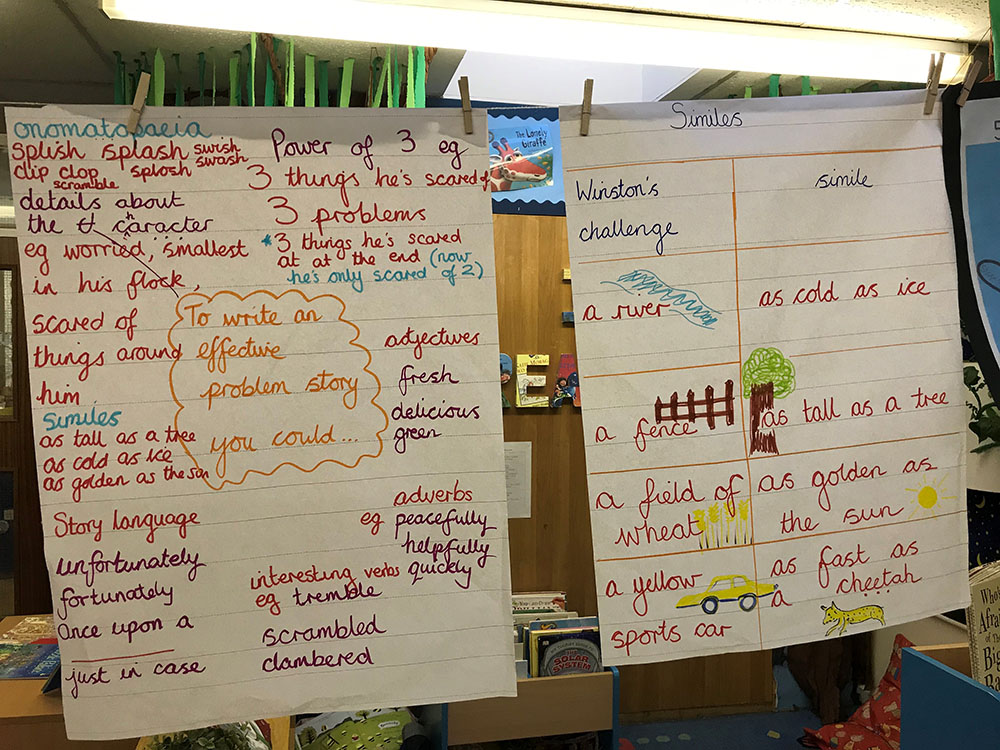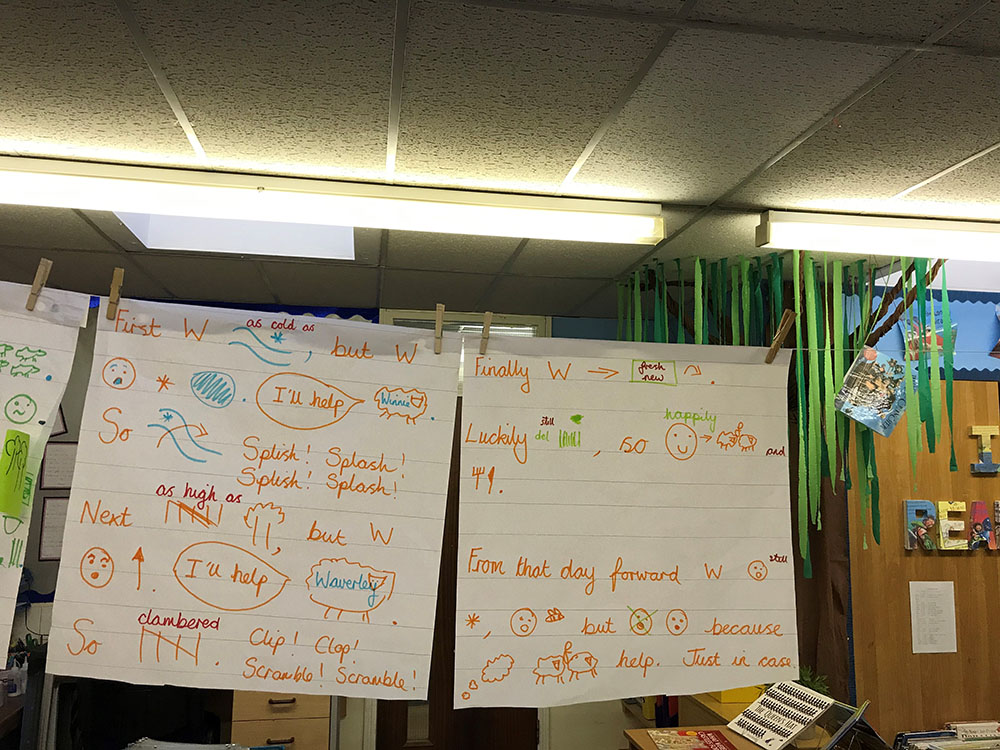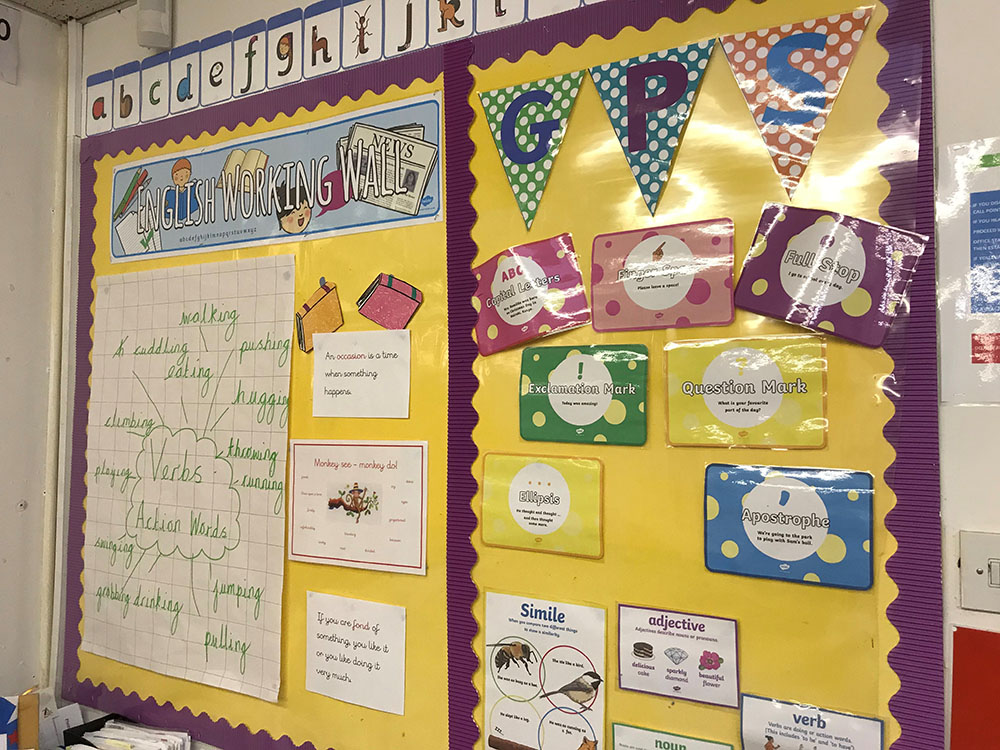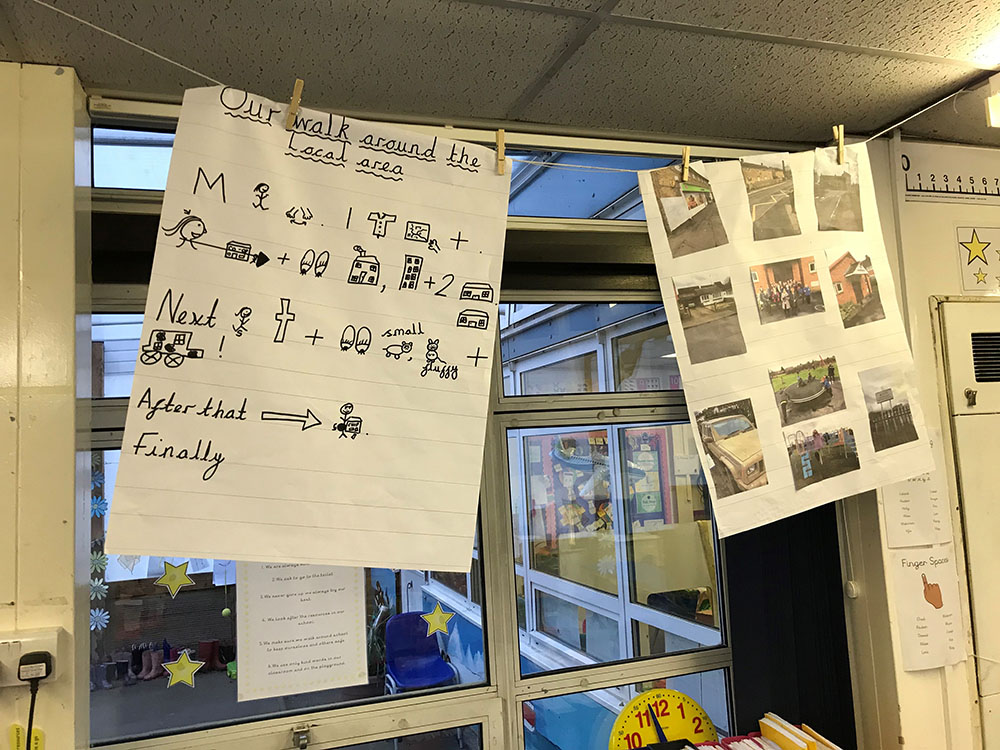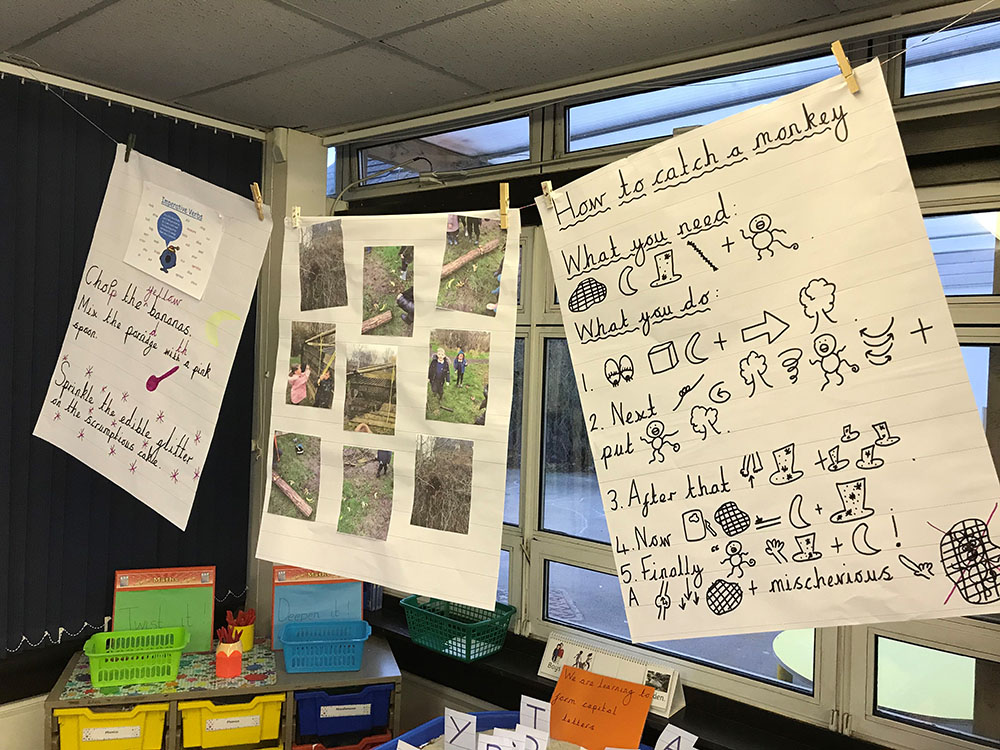
Phonics
At Hester’s Way Primary School, we use the systematic and synthetic phonics scheme “Sounds Write”, to teach the skills of decoding to the children in Reception and Key Stage 1. We also use intervention programmes such as: “Talk Boost” and “Dancing Bears”, for those pupils who need it. Please see the “Sounds Write” programme overview and link to their website.
Phonics Guidance for Parents/Carers
Help your child to read and write: New online course
‘Help your child to read and write’ is an online course in two parts – and the first part is free! It’s aimed specifically at parents and carers who are interested in putting their children on the first steps to literacy. Part 1 covers the first seven units of the Initial Code, and Part 2 covers units 8 to 11 inclusive.
You can find the course by clicking on the graphic below, or go to:
https://www.udemy.com/course/help-your-child-to-read-and-write/
Also, you can find resources here:
https://www.sounds-write.co.uk/page-84-downloads-links-for-parents-teachers.aspx
Reading
Reading is a vital, key, life skill which will improve the future successes and educational outcomes of our pupils. We are dedicated to enabling our pupils to become lifelong readers, who enjoy “reading for pleasure” and have a love of literature.
We use the “Sounds Write” de-code-able books, linked to phonics teaching, then other schemes include Oxford Reading Tree including Project X, Songbirds, Snapdragon, Pearson’s “Bug Club” and Big Cat.
As a school, we believe that reading is vital for academic success across the curriculum. Reading develops the mind and imagination. We learn and gain knowledge of subject areas, as well as acquiring vocabulary (75% of our vocabulary comes from reading), and the ability to think in the abstract. It develops language and communication skills.
Our staff have been trained by Pie Corbett, an educational adviser, who has been a head teacher, Ofsted inspector as well as a writer, author and poet, in “Reading as a Reader!”. We have been developing our whole class reading sessions. This is now linking into our current “Talk for Writing” training and outcomes.
We want our pupils to be competent readers who can: recommend books to their peers; have a thirst for reading a range of text types; take part in discussions about what they have read including an author’s use of language and its impact on the reader, as well as answering comprehension questions and improving their progress to reach national attainment outcomes.
Reading comprehension is planned, using “Vipers”. The comprehension focus is introduced in through modelled and shared whole class sessions, children work in groups and independently to complete activities or tasks.
Every class has dedicated time, “Reading for Pleasure” and a protected story time session, at the end of each day where the teacher will read aloud books, including those in our Reading Spine.
Our Reading Spine
This is a range of age-related and “best books” that all teachers can refer back to, with “best” defined as a rich, diverse sampling of engaging and useful books that serve students over time. These great stories build up language acquisition. This common bank of stories helps to bind our school community together through shared experiences, being able to talk about books that children have read or listened to year on year, as well as ensuring that our pupils are immersed in texts similar to their peers in other local and national schools. Please see the Pie Corbett Reading Spine.
Whilst we feel that this common base of books that all children read for shared reference must be diverse and representative, we also believe that this selection should include classics. Classic texts help us to develop our children’s cultural knowledge and give them cultural touchstones which will develop a feeling of belonging. These books are also often “pre-complex” texts which introduce children to syntax and language of complex texts that they will meet later. We would not want all of the books that a child encounters to be classics, but we do believe that one of the greatest gifts a teacher can give to their pupils is a book that they might never have considered themselves. This forms part of our “Cultural Capital” Offer.
We must not assume that the type of books that a child already knows, that they like, is all that they would like if they were given the opportunity. It is our role to introduce children to a wider range of books than they may independently choose in order to develop a familiarity with broad range of texts.
Writing
Our school has committed to a two year, “Talk for Writing” training programme, which will ultimately develop and improve our pupil’s writing outcomes, through the T4W process. At Hester’s Way Primary School, we aim to inspire the children’s love of English by developing their skills, in order to become thoughtful readers and creative writers.
Our mission is to enable children to immerse themselves fully into a text. They will broaden their speech and language, widen their vocabulary and further their understanding of different text types. Every child has the potential to be confident readers and creative writers.
“Talk for Writing” is an engaging teaching framework developed by Pie Corbett. It is powerful and demonstrates good outcomes, as it is based on the principles of how children learn. It enables children to imitate the language they need, orally, before reading and analyzing the text and innovating (changing) the text, then moving on to inventing – writing their own version.
The “Talk for Writing” process is used from Reception through to Year 6.
As a school we have mapped out the text that we use and linked in “short bursts” or poetry, rhyme and other literary contexts, as well as planning in opportunities for the children to apply their writing skills independently, in other subject areas. Please see our “Whole School Text Overview”.
Whole School Overview
Talk For Writing
Grammar, Punctuation and Spelling (GPS)
We teach GPS through Talk for Writing. This process starts with an initial assessment, our “Cold Writing Task.” The children are given an interesting or rich stimulus to see what they can do independently at the start of a unit, drawing on their prior learning. The writing is then assessed and used with our internal teacher judgement assessments, to identify what the children should learn next on the Talk for Writing progression grid. The teachers set targets for the whole class, groups and individuals, for the writing unit of work. The model text is then adapted to include the text features, vocabulary and GPS that will be taught in the unit. At the end of the unit the pupils complete a “Hot Writing Task” which is an independent task on a similar type of writing, which then demonstrates the progress the children have made.
Talk for Writing Progression Overviews
The “Talk for Writing” progression overviews set out what we expect to teach in each year group. Teachers use the pupil’s writing outcomes assessments, to plan next steps using the overviews as a planning tool. The “Talk for Writing” progression and overviews are set at age-related and above, which enables us as a school to aspire, aim high, and teach with higher expectations of our pupils. This will in turn improve progress and raise attainment. Please see the “Talk for Writing” Progression Overviews.
